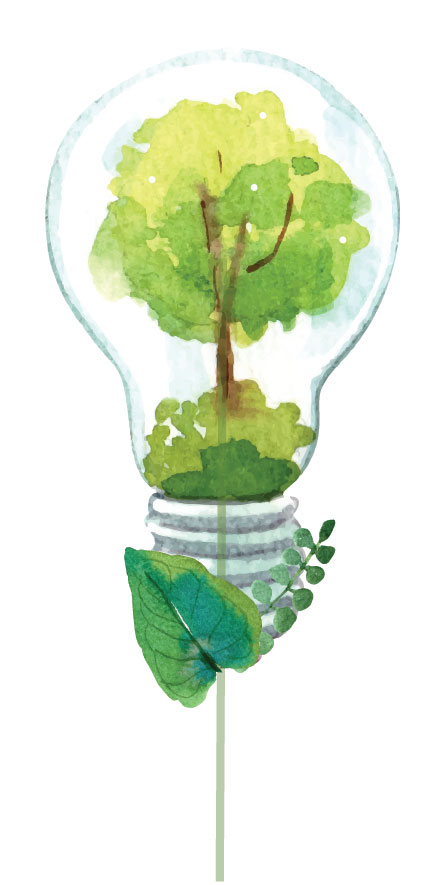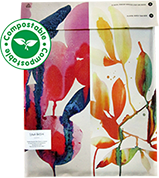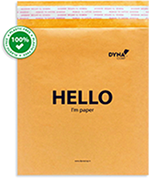Sustainability
Sustainability in our products
We use our advanced technology to produce sustainable, functional, appealing, flexible, and cost-effective packaging products.
Our Sustainable Product Portfolio
Compostable
RangePlastic Free
RangeRecyclable
Range
Sustainability In Our Approach
Our Guiding Principle
We are committed to this planet and life on it and will take steps to sustain & regenerate it to the best of our ability.
A sustainable approach raises a question of convenience vs. cost vs. survival of business vs. availability of alternate vs. ethical questions and many such alternates. We chose sustainability based on our guiding principle.
Being sustainable isn't as easy as it sounds. There are a lot of questions that may have no straight answers, making it difficult to decide on what to do and what to avoid.
Some Thought-Provoking Questions
Should we risk killing the planet by throwing billions of N93 and 3ply masks, which are 100% plastic, or should we risk our lives by not wearing them? Or shall we do with less protection a reusable cotton mask provides?
Should we pay more to buy refillable packs or pay less to buy smaller economical packs and cause more waste?
Shall we aim to reduce the amount of plastic material going in packaging to reduce footprint? Or add more plastics to make it last much longer?
Shall we use more compostable materials in packaging even after knowing that it's made from a food source and, if not put in a composting facility, goes in a recycling stream to cause more damage? What about food shortages?
Are water fountains better than water bottles? What about hygiene, especially in these infectious times?

Should we stop wearing synthetic clothes that pollute the oceans with microfibers? Or give up the convenience of wearing sportswear, adventure wear, anti-crease,anti-sweat, and anti-wash fabrics.
Shall we stop using plastic bags and only use paper bags which consume enormous amounts of water & are so heavy that transporting it causes heavy air pollution due to fuel use which may cause more damage? Or is it better to reuse plastics and make recycled content bags?
Shall we buy local to reduce the usage of fuel and hence its impact on air pollution, what about features and properties that a big brand offers vs.simple local products at times?
Should we give up the convenience of giving milk or juice to our kids while travelling knowing that the pack is made up of 3-7 different materials fused together, which can almost never be recycled or reused practically?
Does it all mean that your business and customer needs will be met by using sustainable inputs, avoiding materials that are non-recyclable as much as possible, using more local materials, reducing carbon footprint, designing products that can be recycled, composted, reused, repaired etc.?
Well, there is no one answer, as they say -one man's food is another man's poison.
For a small local brand, glass bottles might work, but for a larger brand, the air pollution generated in shipping heavy glass bottles across the country might cause more damage than using plastic bottles, which are designed for reuse.
What we at DYNAFLEX bring to the table is complete transparency, with all pros and cons and options in terms of inputs, costs, sustainability, availability,etc. and let YOU – our customers and their business – decide.
Sustainability In Our Operations
At DynaCorp we strive to reduce energy use and the environmental impact of our facilities and practices.
As a global packaging leader, we are able to leverage our vast experience and technical know-how to exploreopportunities and apply environmentally friendly technologies and materials to reduce the impact on the planet – not only of our own but also that of our customers and consumers.
Our Sustainability Practices
To Improve Air and Water Quality
To Reduce Energy Consumption
To Optimize Recycling
Our Sustainability Practices
- To Improve Air and Water Quality
- Reusing hot air from printing machines by filtering solvents, reducing VOCs & power consumed.
- Reducing water consumption by changing all taps to self-shutting water taps.
- Reusing water for gardening by installing sewage treatment plant.
- Use only food grade solvents.
- Increasing use of cellulose plant based inks.
- Recycling and reclaiming solvents used in cleaning of machines & moved 50 % cleaning of machines to water based liquids.
- To Reduce Energy Consumption
- Using LED lights to reduce power consumption.
- Using hot air powered ventilators to reduce heat reducing and regulating temperature without any power consumption.
- Reduce electricity consumption by replacing roof with translucent sheeting hence reducing lighting requirement.
- To Optimize Recycling
- Collect and recycle waste paper, scrap plastics, and scrap metals.
- Reuse pallets & sacks.
- Continually work towards maintaining a landfill-free facility.
Sustainability Inherent In Flexible Packaging
From resources and water usage to its carbon impact and product-to-package ratio, sustainability in flexible packaging is environmentally effective.
-
Reduces impact in manufacturing
Less energy and fewer natural resources used -
Produces less Co2 emissions
Smaller environmental footprint -
Improves product-packaging ratio
Efficient resource
utilization -
Optimizes transportation
Fewer trucks on the road for transport -
Extends shelf life
Less waste





